Failure. It’s bound to happen.
Innovation is risky, and change is risky, so it should come as no surprise that we have failures. Perhaps we have more to learn from failure than success, which means we must reflect.
Since launching askmyGP v3 in August we’ve had three practices turn it off. I won’t name them, suffice to say they differ widely in size, demographic and location, but you all want to know why they gave up.
The common theme in what they told us was that they felt unable to cope with patient demand.
Yet patient demand was very close to predicted, within 10%, as it has been with the great majority of successful practices.
We do point out that unmet need is uncovered when limits are removed, which may appear to be a rise in demand in the early weeks. A small number of patients will abuse the new system, as they did the old one, but we’ve found from our Datalog audit that in the GPs’ view this is around 3% both before and after launch.
We don’t say it will be easy. We do say that with perseverance both patient service and GP working lives improve. But those that start from a strong patient service ethos seem to do best for their own working lives too.
The commitment to fast and appropriate response from the whole team puts them in control and minimises rework. That doesn’t mean saying yes to what every patient “wants” – that way lies madness. It does mean sufficient breaks around GP and staff needs. Indeed the day can be much more flexible, with many opting to work from home part of the time.
While failure means a return to the previous state with all its frustrations and stresses, success is a journey not an endpoint. It’s all about flow, measured continuously:
- Patient demand, by type, mode and timing over weeks, days and hours. This matters for designing the service.
- Elapsed time to complete requests. Usually the chief concern of patients.
- Continuity, where appropriate. Often key to patient satisfaction, GP job satisfaction and quality of care.
- Efficiency, a chief concern of providers as it drives workload, quality of working life and profit.
- Patient satisfaction, for which we publish summary charts in real time:
The benefits from wholly embracing system change are orders of magnitude greater than from any hybrid system, and a large part of our work is giving practices the confidence to do so. Followng that is an enchanting journey of learning, experimentation and refinement.
We too are continually learning, often finding we can help the flow with new features, better measures, or working with practices to solve unique problems. Sometimes we change our advice,
While change cannot be absolutely risk free, for many businesses, staying the same may be the most risky strategy. We only have to walk down our high streets to see the consequences. For most GPs, protected as they are by permanent contracts, staying the same and offering a service no worse than others locally may not seem too bad, though it hardly inspires.
Our greatest challenge, and by far the greatest cause of failure, is failure to overcome fear, to reach consensus and therefore failure even to start. Let’s re-iterate our purpose in undertaking this work:
We make it easier for patients to get help from their own GP.
We make it easier for GPs to provide that help to their own patients.
Sometimes the way may seem hard, but reward comes through perseverance. We have a mantra to take us through those times:
“First for our patients, then for ourselves.”
Harry Longman
PS After the rain, sunshine. I’m about to share some of the most moving patient feedback we’ve had, just from the past week.
- Published in Comment
How to run a more profitable practice
Last month we were at Best Practice conference in Birmingham and having a jolly good time until something really annoying happened.
We’d spent a lot of effort on our stand and if you’ve ever done these events you’ll know the few square metres cost £ thousands, never mind the little table and bar stools which are more to rent for the two days than they would be to buy.
We were dead opposite a mini theatre where every hour someone would roll up, no doubt having paid more £ thousands, to do their presentation on the latest dermatological cream or ear inspection widget. They’d pull in a couple of dozen delegates, grateful for the chance to sit down and fiddle with their devices.
Then all of a sudden we find custom has dried up and we are looking at the backs of a huge audience, filling all the chairs and spilling into the space around our stand. Everyone rapt.
The title: “How to Run a More Profitable Practice”
Sorry I have no idea what he was on about, I couldn’t see over the crowd, but he was one of the small army of advisors which serve general practice.
They are the accountants, solicitors, lenders, financial advisers and so on who make their crust knowing the many little levers of profit which independent contractors can play on to their hearts’ content. Good luck to them.
What amuses me is that when we ask GPs what are their priorities in undertaking change, 93% of them put “money” as the lowest (out of 5) of their concerns. Haha.
What amazes me is that these same GPs getting advice on how to reclaim VAT on rubber gloves are not even thinking about the dominant cost in their businesses, which is of course the GPs – their own time, their salarieds and especially their locums’ time.
The main cost of meeting patient demand is GP time. (by the way, this is why “GP at Scale” is doomed to have precious little effect on drawings. It’s no more efficient for consultations, and possibly worse because of lost continuity)
Therefore the best way to be more profitable is for the GPs to be more efficient. (I’m not including the option to turn patients away. No matter how much it happens, it’s plain wrong).
Bluntly, with askmyGP we enable GPs to be far more efficient in dealing with patient demand. How much, how fast, how that is balanced between fewer sessions, finishing earlier, running more patients or giving a better service, all those factors vary.
Just to get a sense of how that works out, watch our new three minute video, the Burnbrae story. Dr Sue Arnott is so cool and calm, as a full time single hander with her team running 5,000 patients.
You do the maths.
Harry Longman
PS we’ve had a tremendous response from GPs signing up to the Digital Triage Experience even before we put it on the website, but click the link and we’ll create yours. You will make your own triage decisions on 50 cases within about 15 minutes, and see why this is the greatest lever on profit you’ll ever find.
- Published in Comment

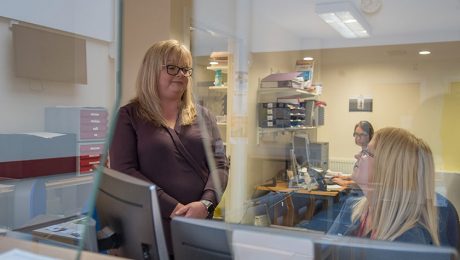
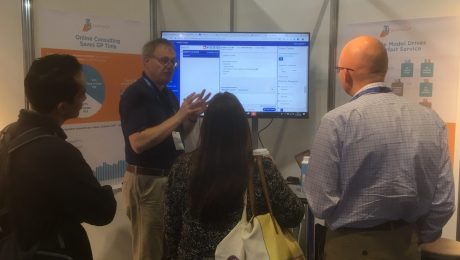

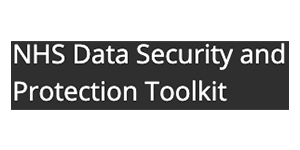
Games Patients Play
Looking up Eric Berne’s classic “Games People Play” I was surprised to find it was published in 1964. He calls it “a way of predicting people’s behaviour.”
It would be pleasing to say we have learned more as time has passed. I doubt it would be true.
Without going into the great psychiatrist’s theories too far he was clear that destructive games caused a lot of pain not only to his patients but to all of us in our daily lives.
I was reminded of these ideas when joining in a Twitter conversation about DNAs (did not attends), a GP complaining that 4 out of 7 patients hadn’t turned up – blame the patients for wasting GP time, NHS resources and slots which someone in need could have taken.
It all makes sense, until you realise that these were Saturday morning “extended access hub” slots. We know that very few patients want weekend slots, and they don’t like to travel away from their own surgery or see someone they don’t know. They were sent there and then as their own practice gave them that option or nothing.
We know that the longer the gap between the booking and the date of the appointment, the higher the DNA rate. On the same day, DNAs all but vanish. Our practices don’t talk about them any more. If changing the system with the same patients eliminates the problem overnight, it follows that DNAs are a system problem, not a patient problem.
The blame game is very simple: “We tell you when and where you will be seen, by whom. We blame you for not turning up.”
We find the same things happening with all kinds of variation. The most common game for appointments is “Nothing left today, you’d better call tomorrow but make it early as they all go around 8 am”. A friend of mine had the whole family of six call the surgery at 8am to increase the chance of one of them getting through.
Another game is “We’re very busy so we allow booking up to six weeks in advance for routine matters”. The mother would take the slot, and would turn up herself or with whichever child or frail elderly relative was most in need on the day.
A new one on me recently was “If you phone in the morning a nurse will triage you. Phone after 12.30 and a GP will triage you for the next day”. In seven years this is the first ever practice I’ve met which has more “demand” in the afternoon.
Whenever we start work with a practice we ask them how the appointment system operates, and we look at their website. So often they summarise it in the two words, “It’s complicated.”
We’ve reached the point that we know from the rules what games patients will play. Then we get the data on demand patterns and it turns out exactly so.
It’s really “Games providers play”, and the cost they and their patients pay is rework. Everyone gets locked into the game, working like stink, deeply frustrated, achieving little.
I love what Eric Berne says in his field:
“Everybody has a hunger for intimacy, a game free zone where people are straight with each other.”
The alternative for practices is to rewrite the rules very simply:
“Let us know your problem, whenever you like. Tell us who you would like to help you, if not anyone, how you’d like us to contact you, and any issues with timing.
“We’ll work out very fast how to help you. No promises, but we’ll do our best to meet your preferences too.”
What happens is quite astonishing. Not only do patients almost always find their needs met, but because there’s so little rework, it’s less effort for providers.
This week from a Bristol patient: “So much easier as I have time to think what I want to say, and it frees up staff to do what they need to do.” We get dozens every week on the same theme.
Games over.
Harry Longman